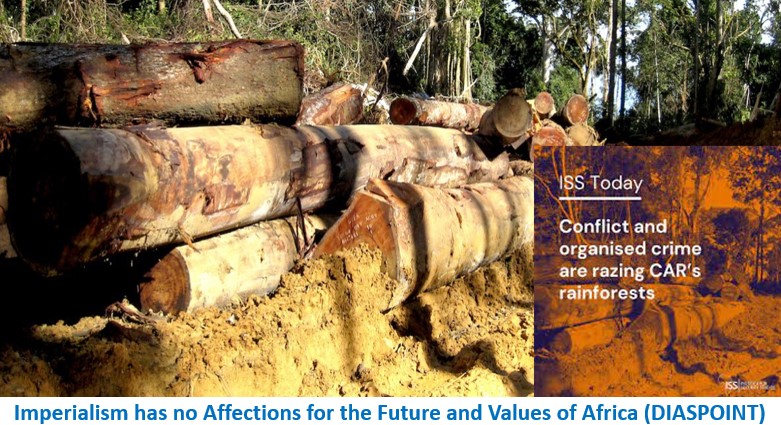Conflict and organised crime are razing Central African Republic’s rainforests
Post By Diaspoint | August 16, 2023

International support is needed to sanction businesses complicit in timber trafficking from the Central African Republic
Forests cover just over one third of the Central African Republic’s (CAR) territory. The forestry sector is a vital source of income and employment, contributing 13% of the country’s export revenue.
This precious resource is however under threat from years of conflict and widespread criminality. Illegal logging, firewood trafficking for charcoal, and timber trafficking contribute to a deforestation rate of about 1% of total rainforest coverage every year. The most sought-after wood species is Sapele – a reddish-brown hardwood widely used for making furniture, decorative veneers and musical instruments.
At the base of the criminal chain are traffickers from the Democratic Republic of the Congo, Congo-Brazzaville, Cameroon, Chad, Sudan and South Sudan, according to findings from recent ENACT research. The kingpins are foreign nationals from Asian countries. While the CAR is the source for illegal logging, wood and products are trafficked through neighbouring countries via several road and waterway transit corridors.
The illicit trade is exacerbated by weak law enforcement, porous borders and increasing transnational demand for the country’s timber products. Timber trafficking has also been enabled by the CAR’s protracted political instability, and has played a major role in funding the conflict that has decimated the country. Illegal timber exports have attracted militias and armed groups seeking funds to buy weapons in a power struggle that has collapsed the state and claimed the lives of thousands of citizens.
Illicit timber exports have attracted multiple militias and armed groups seeking funds to buy weapons
After a coalition of Séléka rebels deposed then-president François Bozizé in 2013, thousands were tortured and killed. During the Séléka rule, Chinese, French and Lebanese trading firms continued to illegally sell the CAR’s rainforest timber on a large scale, according to a Global Witness report. These companies paid an estimated €3.4 million for ‘protection’ services, empowering the Séléka rebels to sustain armed groups on the ground and procure weapons.
Read More from original source
